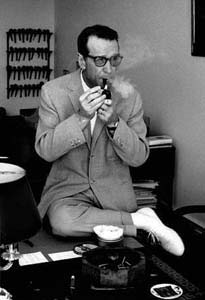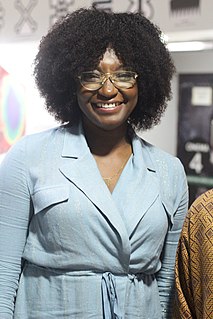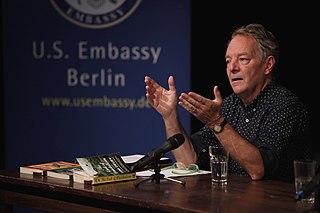A Quote by Alexi Zentner
When I'm writing a novel, one of the things I do is get big poster boards. They're actually canvases that artists use. And I keep all the characters' names on them. If you write a big novel, there's a lot of characters.
Related Quotes
But to be perfectly frank, this childish idea that the author of a novel has some special insight into the characters in the novel ... it's ridiculous. That novel was composed of scratches on a page, dear. The characters inhabiting it have no life outside of those scratches. What happened to them? They all ceased to exist the moment the novel ended.
I think the success of every novel - if it's a novel of action - depends on the high spots. The thing to do is to say to yourself, 'Which are my big scenes?' and then get every drop of juice out of them. The principle I always go on in writing a novel is to think of the characters in terms of actors in a play. I say to myself, if a big name were playing this part, and if he found that after a strong first act he had practically nothing to do in the second act, he would walk out. Now, then, can I twist the story so as to give him plenty to do all the way through?
The script in many ways is limiting and novel is liberating. You get to go into the heads of your characters and their background and have fun with them; something you are discouraged from doing with a script. With the novel, I can tell you what the characters are thinking, I can tell you their view of the world, background information, things I wouldn't dare touch in the script.
I don't know how to write a novel in the world of cellphones. I don't know how to write a novel in the world of Google, in which all factual information is available to all characters. So I have to stand on my head to contrive a plot in which the characters lose their cellphone and are separated from technology.
Yes. To write a novel is to risk my sanity. The deeper I get into the suffering and conflict of the characters, into the very situations and thoughts and feelings that make the novel worthwhile, the worse I feel, and the more likely I am to be severely depressed when the book is finished. There is no avoiding this: it is the result of attempting to tell all you know, to reach for the stars, to write what matters.
I am by nature not a list-keeper, but I do keep lists of names and add at least one or two every single day without exception. First names, last names, middle names, combinations of. I've collected more over the years than I can possibly ever use in a single lifetime, but I keep the list going nonetheless. I tell my students that it's a habit, an act of attention, that will keep them engaged, keep them thinking about characters and stories, and how that match might get made.
Nothing is wrong with you. You're not different. Everybody feels as bad as you do: this is just what writing a novel feels like. To write a novel is to come in contact with raw, primal feelings, hopes and longings and psychic wounds, and try to make a big public word-sculpture out of them, and that is a crazy hard thing to do.






































